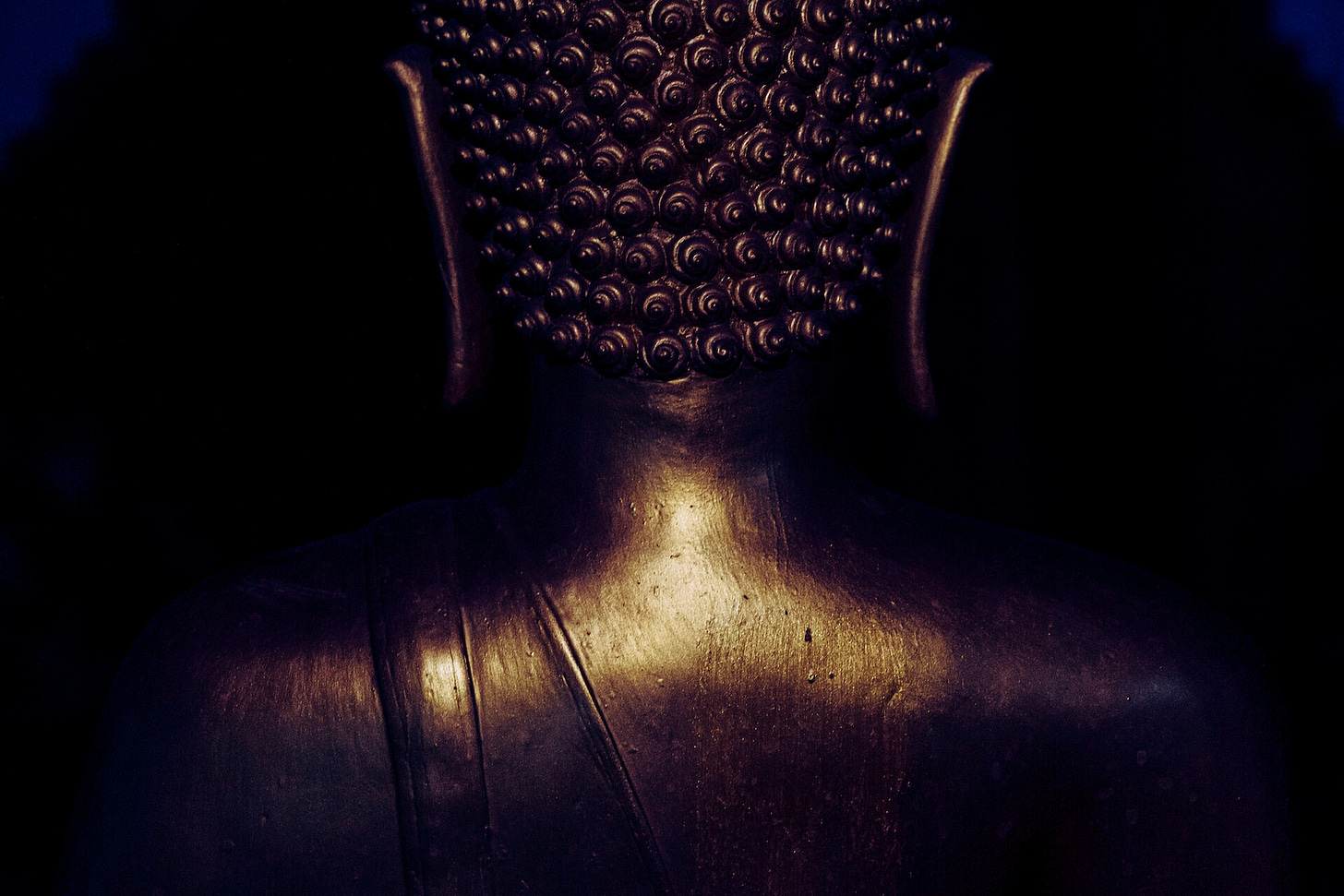Beyond Buddhism
Practicing the Buddhadharma has an unexpected and inevitable result: letting go of Buddhism.
I have contained myself. I have not yet taught the Dharma like I want to. Lately, being a Buddhist instructor feels constrained.
“In this class, I will discuss the Four Noble Truths.”
“Today, we will discuss the topic of impermanence.”
"The Buddha said that nothing in our experience is 'Self.'"
"The law of karma says that all actions have consequences."
I’m one more teacher saying the same Buddhist thing. There is nothing wrong with that, of course. The Buddhadharma is lovely as it is. But for weeks, maybe months, I've felt like I haven't been entirely authentic. So I want to go beyond it.
It's funny because, in 2010, when I told my first teacher I would teach meditation despite his disapproval, I felt like I was transcending Buddhism. At that time, I felt trapped by Tibetan Buddhism and wanted to teach my version of meditation.
And to a certain extent, I did go rogue.
But more than a decade later, the feeling of being trapped returned. Although I present the Buddhadharma in my way, and while I think Buddhist ideas are a blessing on Earth, I feel the need to express the Dharma beyond Buddhism.
Make no mistake: I have nothing against traditional Buddhadharma. On the contrary, I am a genuine traditionalist.
But I have yet to give myself a chance to get out of the Buddhist paradigm, and it is urgent to do so because I have a lot to say and do without relying on the familiar words that everyone uses in the Buddhist world.
I sense new ways of expressing the Dharma. New rituals that use languages that do not come from India or East Asia. I want to “dharmafy” my interests that aren’t Buddhist. If you know me, you can guess where things will go.
Does this mean that I will stop teaching the Buddhadharma? Of course not. Whoever wants to learn the real thing, the teaching will be given. But there is more to be done.
The Buddhadharma was a stepping stone.
It is said that the Dharma's primary goal is to eradicate all beings' suffering. I've said that myself a thousand times. And yes, that's what Buddhist practice has done for me. But it's not the only thing.
Buddhism tears human suffering to pieces with a simple but profound teaching: if you investigate sensory experience well, you will realize that nothing can be identified as the Self. Hence, you will stop establishing the Self.
If the Self cannot be established, there is no suffering. That’s it. That’s the goal of the Buddhadharma.
There are two more outcomes that, while mentioned from time to time in Buddhist teachings, are not given as much promotion as the “end of suffering” promise:
Not being able to ignore the truth and…
Mental freedom.
The first is a blessing. It prevents me from bullshitting myself and closing my eyes to what is true. The second result is also extraordinary. It allows me to put aside perspectives that have defined me but that now hinder me or hurt me.
Here’s an example: For decades, I thought discipline was an ill way to live. In my eyes, anyone governed by a wholesome set of rules was addicted to order. Conversely, I believed the healthy way to live was without structure and with total freedom.
There are indeed people obsessed with discipline in the wrong way. But many are incredibly disciplined in a healthy way. But to me, they were all control freaks.
This mindset caused many problems at work for me (missing deadlines, being late, mediocre performance) and in my projects that were supposed to be fun (unfinished endeavors and dreams that weren’t realized).
But thanks to my Buddhist practice and the results I mentioned above, I couldn’t fool myself any longer regarding my mistaken view about discipline and later freed myself from such a view.
Those outcomes changed my life. They are still changing it.
So nowadays, I can’t close my eyes to other truths: I feel a strong urge to express the Dharma in terms other than Buddhist. Dharma has liberated me of the Buddhist identity I built for myself, and hence I now have a chance to explore new horizons of my being without feeling that I am betraying my “Buddhist-ness.”
Zen monks tell you that when you meet the Buddha, you should kill him. Why? Because Buddhism can and does become a prison.
Later I will start transmitting these new expressions of the Dharma.
Want to be free of your prisons? Here’s what I did:
Meditate every day, so being mindful of yourself becomes second nature.
Write in your journal the characters you incarnate.
Label those that are now obstacles.
Stop incarnating them.
May you transcend all your prisons.


